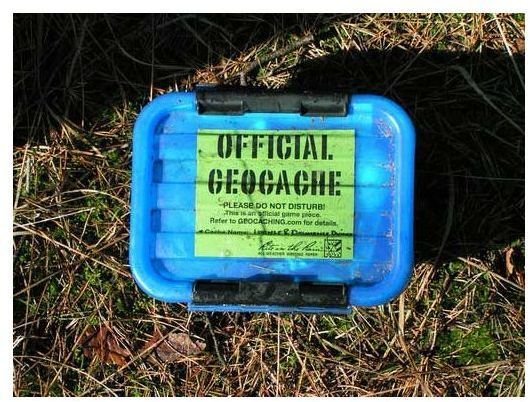What is Geocaching? Treasure Hunting with a GPS & How to Start Geocaching
Geocaching
The fundamentals of geocaching are based on an old “game” with a relatively new twist made possible by the widespread availability of Global Positioning System (GPS) devices. In this activity, one individual or group hides a secret cache and then uses some type of GPS device to determine the coordinates of the cache’s position. These coordinates are then posted on a web site, privately emailed, or distributed in some other manner to people who want to take part in the hunt for the cache.
The caches themselves might be any type of container, but weather-proof vessels are generally used so that the contents will have some degree of protection from the elements. Some hobby and recreation stores sell containers that are specifically marked as “geocaches”, but you can just as easily make your own using buckets, trash bins, or even dishwasher-safe kitchenware. Just be sure to use some forethought when placing the cache. There’s nothing worse than spending hours, or even days, searching for the geocache, only to find it ripped open and its contents missing or destroyed.
Don’t expect to get rich while geocaching. You’ll probably find some interesting items such as books, postcards, geocoins, travel bugs, and other trinkets, but it’s rare to find anything with marketable value. In addition, the caches will generally contain a notebook and pen so you can sign off that you found the “treasure” and include some notes about your experience. The real treasure is the enjoyment derived from searching and finding the hidden cache, but that doesn’t mean that it isn’t fun and exciting to pick up a nice souvenir along the way.
Although each geocaching group will have its own rules, it’s considered proper etiquette to only take items from the cache if you leave something of similar or greater value behind. This way, the cache will be ready for when the next hunter comes along. Serious geocachers put a lot of thought into the items they leave behind, wanting to make sure that the next person who finds the cache has a positive experience. Also, many will often leave a trinket as a thank you gift for the owner of the cache.
After you’ve found a geocache, don’t forget to report your findings. In addition to leaving notes in the logbook, comment on your experience online. Not only is this a great way to share your experience with others, but it’s also a method in which you can warn fellow geocachers about destroyed or missing caches and difficult terrain.
How to Start Geocaching
One nice thing about geocaching is that while it is clearly an activity that requires participation from several parties, you don’t have to personally know any other interested individuals before getting started. You can simply visit a web site like Geocaching.com, read up on that group’s specific rules, and start browsing for geocaches to locate.
Some groups do charge a membership fee to help defray the costs associated with web maintenance and other related expenses, but most do have a free membership area where you can get enough information to give geocaching a try. Additionally, most of these sites will have forums where you can get advice from seasoned geocachers on anything from which GPS to buy to what type of items to leave behind. If you plan to go trekking in an unfamiliar area, you can also use these communities to get information on climate, terrain, and other geographical data that will help you better plan your trip.
Above all, remember the golden rule of geocaching – leave each cache and its surrounding area better than you found it. Help the environment, in general, by carrying out trash you find in the area and keep future geocachers in mind when swapping out items in the cache. And, don’t forget to log your experience!
References and Additional Resources
Geocaching.com, Guide to the Game, https://www.geocaching.com/guide/default.aspx
Image Credit: Wikimedia Commons/Solitude
